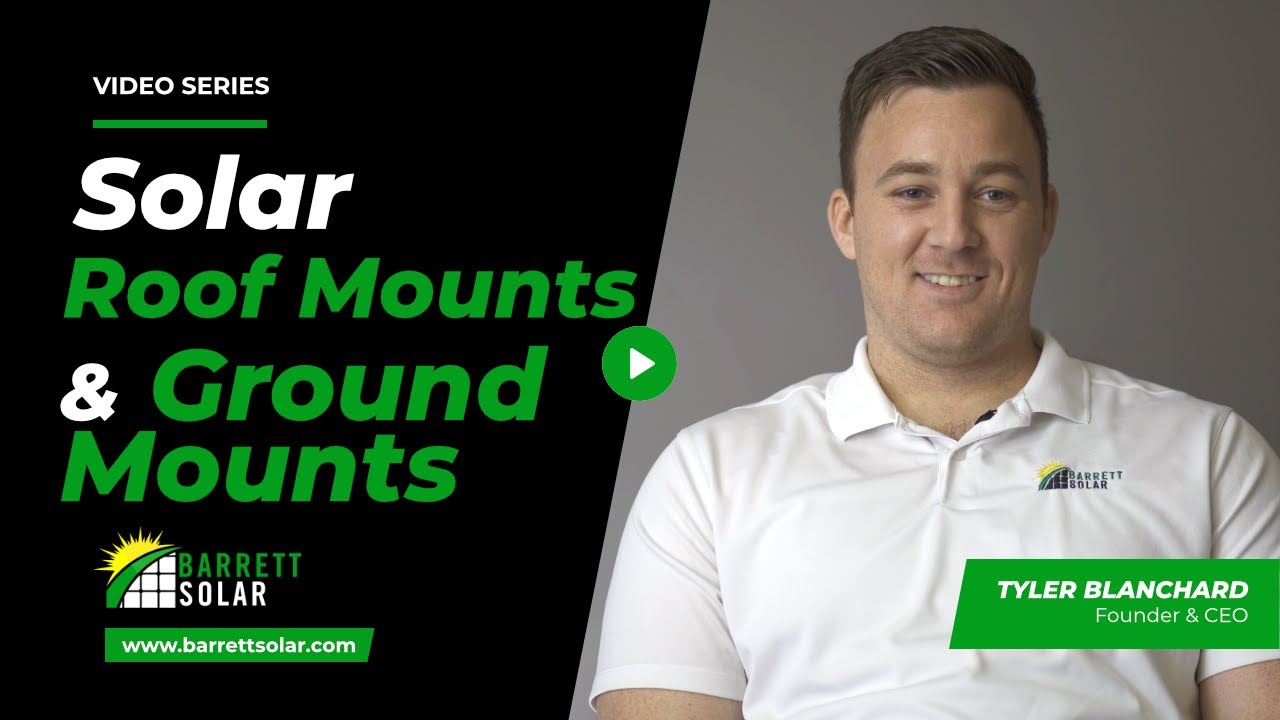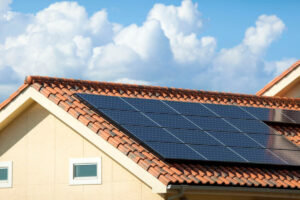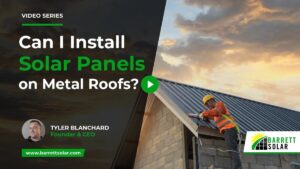Deciding to get solar panels is a great decision, but one of the choices you may need to make regarding your installation is whether to use solar roof mounts or solar ground mounts for your solar panels. Each way of mounting the panels will have benefits as well as drawbacks, and your solar professionals may recommend one over the other for your system’s specific needs.
Solar Ground Mounts
Ground mounts are commonly used for homes that may have roofing that prohibits a robust southern exposure, or in which the pitch or roof area precludes roof mounting methods. In these cases, ground mounts are often used to ensure that the panels always have the optimal exposure angle for your latitude. Ground mounts can often be configured and angled in such a way that they can operate more efficiently than roof-mounted panels.
While there may be many different brands or manufacturers of solar ground mounts, they all function in a relatively similar way and provide similar performance. Since your panels will all need to be mounted on what’s called a “racking system”, the main difference in the types of ground mounts will be the way in which the racking system is anchored to the ground.
One option for ground mounting your solar panels will be to install the racking into the ground using a conventional concrete footing or anchor, which is dug into the ground. Another option for mounting the panels’ racking to the ground using earth anchors, which are essentially very large screws that are driven into the ground, eliminates the need for conventional concrete anchors.
Solar Roof Mounts
When most people picture a solar panel installation they often think of the traditional roof-mounted panels. Roof-mounted panels have some benefits, but for some homes, they may also be less effective than a strategically mounted ground panel system. There are a number of factors that can affect your roof’s solar functionality, including the pitch of your roof, the direction that the roofing surfaces face, as well as the square footage available for surfaces that have significant solar exposure.
Pitched Roofs
Pitched roofing is what you generally see on most residential homes, where the roofing surfaces are sloped downward toward the perimeter of the home. Panels mounted on pitched roofs are generally mounted flat to the roof, so the angle of the roofing surface, as well as the direction of exposure, are incredibly important.
If there is not enough southern exposure, the panels may not generate power optimally. Situations like this may necessitate the homeowners to have panels installed on east and west-facing roofing as well, to capitalize on rising and setting sun hours as much as possible.
Flat Roofs
Installations on flat roofs are also possible, though they are only generally seen on commercial buildings. Since installations like these cannot have panels mounted flat to the roof, nor can ground anchors or concrete footings be used. In cases where solar panels need to be mounted on flat roofing, racking that holds the panels in the proper position is used and is ballasted to the roof with concrete slabs or cinder blocks.
Reach Out To Your Local Experts
If you feel it’s time to make the move toward becoming more energy independent, a solar power installation for your home can be a huge step in the right direction, and local solar experts can help. Contact Barrett Solar today for a free quote for your home’s solar needs, including discussing the potential benefits and drawbacks of solar roof mounts and solar ground mounts for your particular situation.







